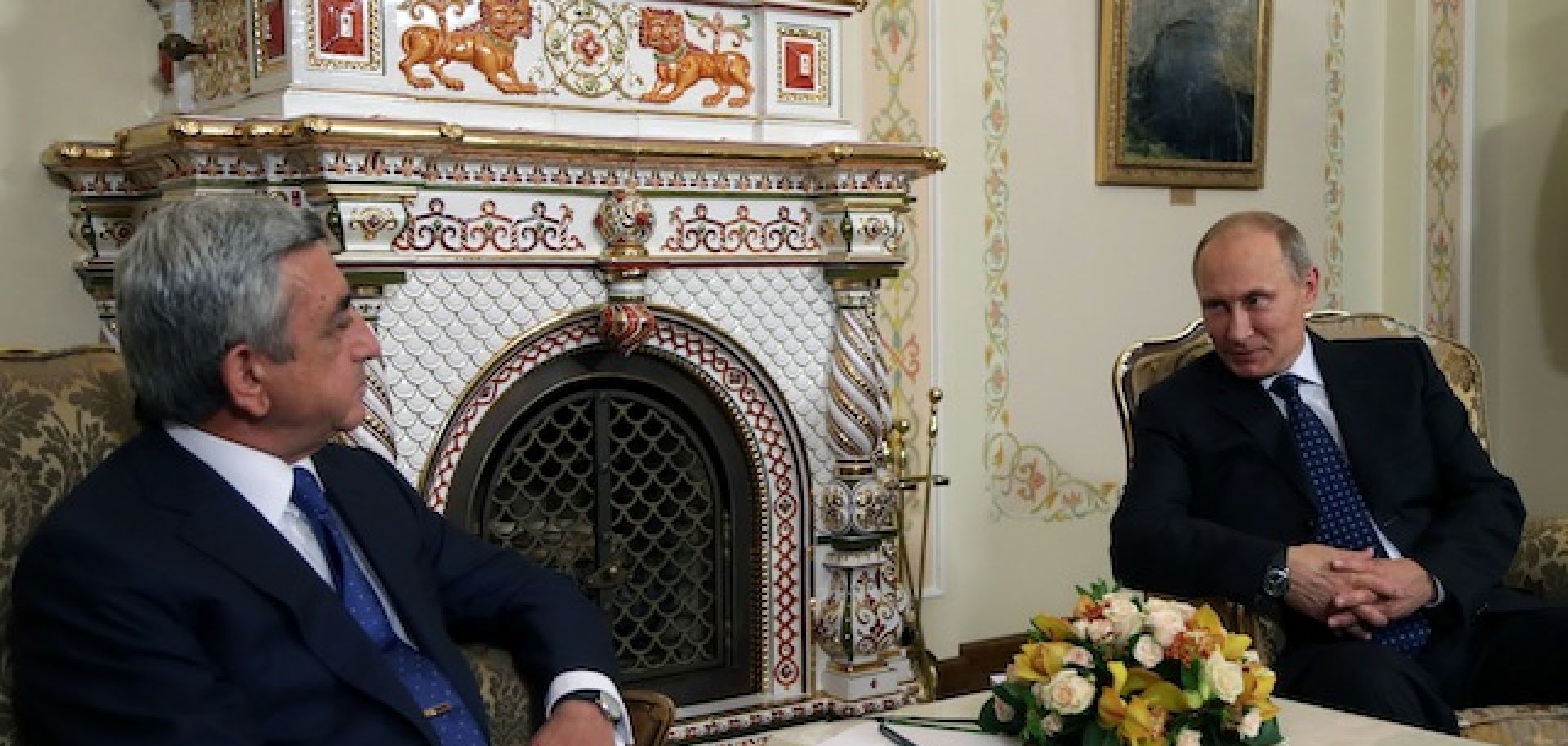ASSESSMENTS
Russia's Response to the EU's Eastern Partnership Efforts
Sep 4, 2013 | 15:20 GMT

(MAXIM SHIPENKOV/AFP/Getty Images)
Summary
After Armenia's decision Sept. 3 to join the Customs Union, a Russian-led trade bloc, a number of European politicians said Armenia will not be able to have a free trade agreement with the European Union because the two blocs are incompatible. Lithuania, which currently holds the EU presidency, is leading efforts to bring six former Soviet states — Moldova, Georgia, Armenia, Ukraine, Belarus and Azerbaijan — closer to the European Union through political and trade agreements under the EU's Eastern Partnership program, initiated by Poland and Sweden in 2008.
Russia has been using its strong economic and energy ties to these countries to block Brussels' efforts, with varying degrees of success. Moscow will likely intensify pressure leading up to the Eastern Partnership summit in Vilnius in November, during which numerous Eastern Partnership countries are expected to decide whether to deepen political and trade ties with the European Union through new agreements. Considering the economic weakness of the European Union and its focus on resolving internal structural problems, Russia — despite internal challenges of its own — can expect some success in influencing peripheral states.
Subscribe Now
SubscribeAlready have an account?
